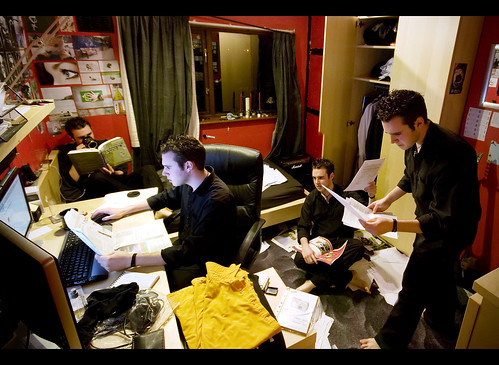Do you know what WOEID means? I didn't until I started research on a presentation about social media and privacy. WOEID stands for Where On Earth ID. Believe me when I tell you information about where you're at and what you're doing is being collected all the time.
Where On Earth ID (WOEID) describes your location in a more friendly way than longitude and latitude coordinates. I hadn't really thought about why this information is important to anyone but, obviously, it has a lot to do with targeted advertising. While that makes perfect sense to me, I'm not all that comfortable about the amount of information being captured about me.
"It's highly likely that if you have had a public profile or website that has publicly accessible data, it's been indexed and identified by someone." Tribalytic.com
According to Tribalytic, a social market research tool focused on Australian tweets, data is extrapolated in a number of different ways. While Tribalytic is only concerned about Twitter, all your social media activity is being examined in the same way, for the same reason. If they can find where you are, what you like, and what you're likely to buy, they can sell you something.
How is WOEID determined?
Some of the ways your information is being identified and attached to you are obvious. However, if you're like me, some of it isn't so obvious and some it is even surprising. Here are 11 ways personal data is being collected and indexed about you.
- GPS coordinates from your mobile phone, computer, car or any other GPS device
- Geo tags derived from user profiles like
- Your time zone
- Yahoo's Placemaker – a free geoparsing Web service for feeds, web pages, news, status updates
- Language identifier – helpful when your `location' isn't enough to confirm your actual position, e.g. `Paris' could mean France or Texas but the language identifier would resolve the confusion
- Text Mining What you're talking about in your social media activity helps position you
- FourSquare and other social media tools using the auto posting feature
- Network theory You probably live where your network is located
- Publically available APIs for nearly every social media site including Facebook and Twitter
- Details from your extended social network including blog, Facebook, Twitter, LinkedIn, MySpace, etc.
- Paid services also known as online detective agencies
Collective Intelligence
It's not just the information you share about yourself, it's also the information your family, friends and colleagues are sharing about you, as well. Essentially, you relinquish your personal privacy when you participate in social media. It's worth remembering once information is posted to a social networking site, you no longer own the data. Another niggling problem, in my mind, is the data lives in perpetuity. Lastly, a site's privacy policy is not set in stone. They change frequently and if the company is sold, the privacy policy is usually rewritten.
If you're a woman living in the Perth area, I'll be speaking on the topic of Social Media and Privacy at a breakfast event hosted by Women in Technology, Western Australia on 27 May. No membership is required to attend the event all women are welcome.
What surprised you about WOEID?
Subscribe
Subscribe here to have new posts from the Global Copywriting Blog delivered by email.
Image credit: Planet Earth by projectarchive.net, on Flickr







Recent Comments